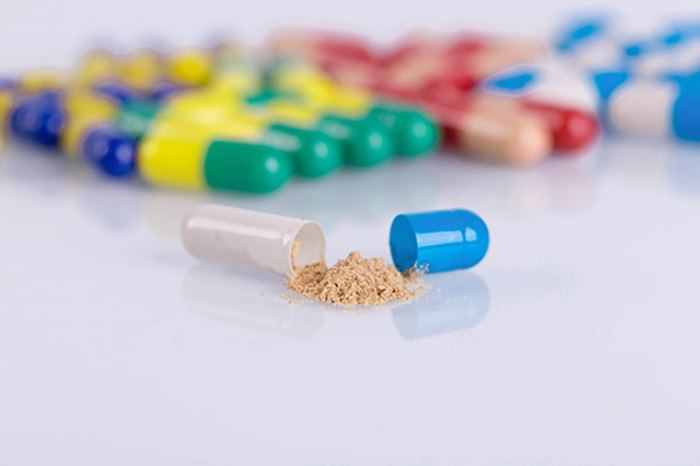Mechanism of Action
Saw palmetto extract is derived from the fruit of the Serenoa repens plant. It is believed to work by inhibiting the enzyme 5 – alpha – reductase, which is involved in the conversion of testosterone to dihydrotestosterone (DHT). DHT is a hormone that plays a significant role in the growth of the prostate gland. By reducing the levels of DHT, saw palmetto may help to slow down or even reverse the enlargement of the prostate.
Additionally, it has anti – inflammatory properties that can help to relieve some of the discomfort associated with an enlarged prostate. The inflammation in the prostate gland can contribute to symptoms such as pain and a feeling of fullness in the pelvic area.
Efficacy and Studies
Multiple studies have been conducted on the effectiveness of saw palmetto for BPH. Some research has shown that it can improve urinary flow and reduce the frequency of nighttime urination. However, the results have been somewhat mixed. While some men report significant relief of symptoms, others may not experience the same level of benefit. It’s important to note that it may take several weeks to months of consistent use to notice a difference.
2. Beta – Sitosterol
How It Works
Beta – sitosterol is a plant – sterol that is structurally similar to cholesterol. It is thought to work by reducing the absorption of cholesterol in the intestines. This, in turn, can lead to a decrease in the production of hormones that contribute to prostate growth. It also appears to have an anti – inflammatory effect on the prostate gland.
By improving the balance of hormones and reducing inflammation, beta – sitosterol can help to alleviate the symptoms of BPH. It can increase urinary flow rate and reduce the residual volume of urine in the bladder after urination.
Safety and Dosage
Beta – sitosterol is generally considered safe for most men. It is available in supplement form, and the recommended dosage typically ranges from 60 – 130 mg per day. As with any supplement, it’s important to follow the recommended dosage and consult a healthcare provider if you have any underlying health conditions or are taking other medications, as there could be potential interactions.
3. Pygeum Africanum Extract
Beneficial Properties
Pygeum Africanum extract comes from the bark of the African plum tree. It contains several bioactive compounds that have anti – inflammatory and anti – androgenic effects. The anti – androgenic properties help to counteract the effects of hormones that promote prostate growth.
The extract also helps to reduce the swelling and inflammation of the prostate gland. This can lead to an improvement in urinary symptoms such as a stronger urinary stream and less frequent urges to urinate. It can also help to reduce the discomfort and pain associated with an enlarged prostate.
Research and Usage Considerations
Some studies have shown positive results in terms of symptom improvement with Pygeum Africanum extract. However, more research is needed to fully understand its long – term effects and optimal dosage. When using this extract, it’s important to choose a high – quality product from a reputable manufacturer to ensure its potency and purity.
4. Stinging Nettle Root Extract
Mode of Action
Stinging nettle root extract may work through multiple mechanisms to relieve BPH symptoms. It appears to have anti – inflammatory effects on the prostate gland. Additionally, it may interact with the prostate cells to reduce their sensitivity to hormones that stimulate growth.
The extract can also help to relax the smooth muscles in the prostate and the bladder neck, which can improve urinary flow. This can lead to a reduction in the feeling of incomplete emptying of the bladder and a decrease in the frequency of urination.
Clinical Evidence and Side Effects
There is some evidence to suggest that stinging nettle root extract can be beneficial for men with BPH. However, the evidence is not as strong as for some other medications. In terms of side effects, it is generally well – tolerated, but some men may experience mild gastrointestinal discomfort such as stomach upset or diarrhea.
5. Zinc Supplements
Role in Prostate Health
Zinc is an essential mineral that plays a crucial role in prostate health. It is involved in many enzymatic reactions in the body and is necessary for the normal function of the prostate gland. Some research suggests that men with BPH may have lower levels of zinc in their prostate tissue.
By supplementing with zinc, it’s possible to help maintain the health of the prostate gland. Zinc may also have antioxidant and anti – inflammatory properties that can contribute to reducing the symptoms of prostate enlargement.
Dosage and Precautions
The recommended daily dosage of zinc for men is around 11 mg. However, it’s important not to exceed the recommended dosage, as high levels of zinc can have negative effects such as interfering with the absorption of other minerals like copper. It’s also advisable to consult a healthcare provider before starting zinc supplements, especially if you are taking other medications or have any underlying health conditions.
Conclusion
These five over – the – counter medications – saw palmetto extract, beta – sitosterol, Pygeum Africanum extract, stinging nettle root extract, and zinc supplements – offer potential relief for men dealing with the symptoms of prostate enlargement. However, it’s important to remember that individual responses can vary, and these OTC options may not work as effectively for everyone. It’s always a good idea to consult a healthcare provider before starting any new supplement or treatment for BPH to ensure safety and the best possible outcome.
Related topics
3 Home Treatments for Prostate Enlargement: A Quick Guide
Can Prostate Enlargement Be Cured Without Surgery?
Prostate Enlargement: Strategies for Prevention and Management


